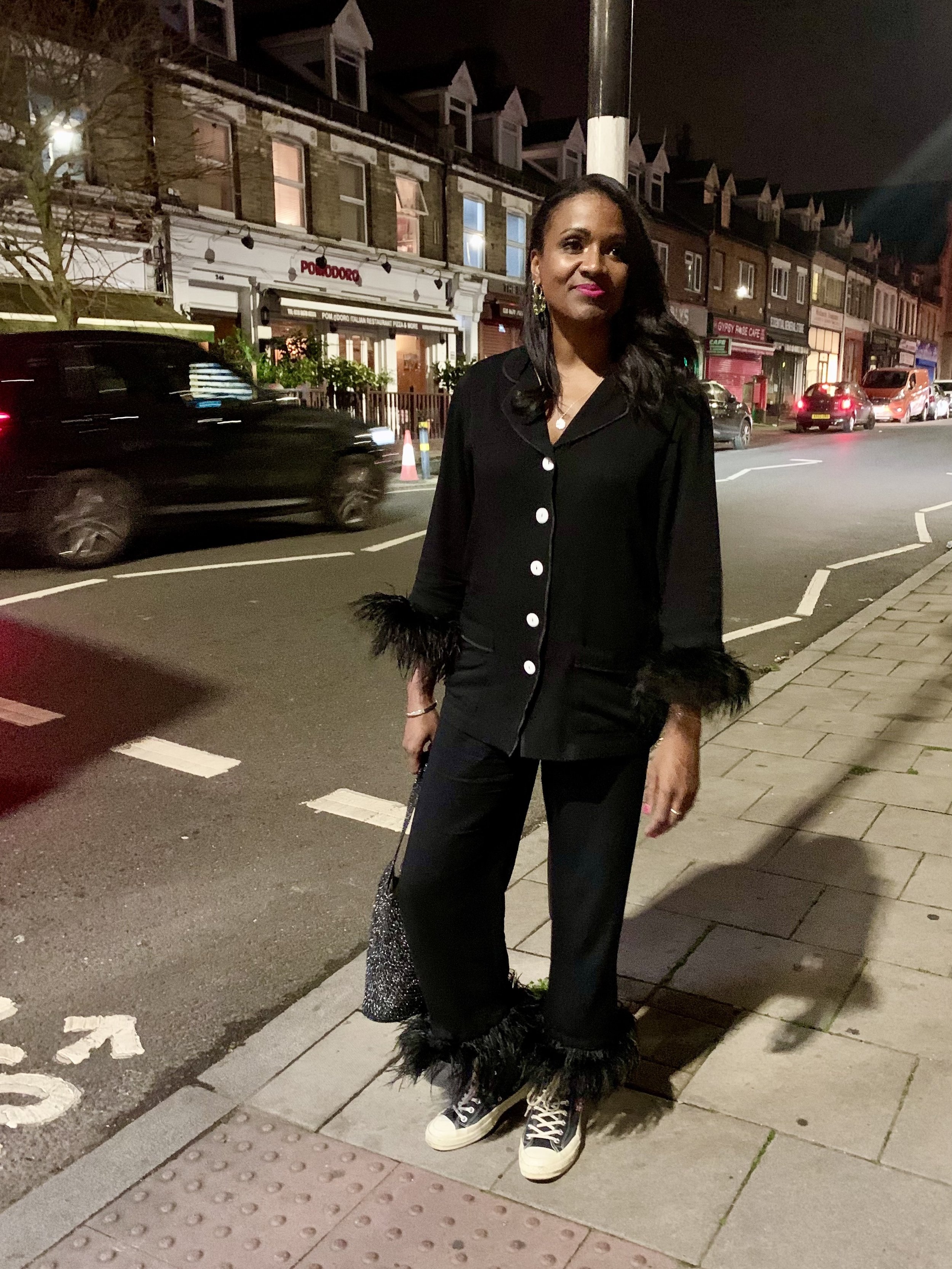INTERVIEW #142 NATHALIE BINNS
Name: Natalie Binns
Occupation: Fashion Retail and Sustainability Consultant
Based in: London
Website: www.nataliebinns.co.uk
Instagram: @natalie_binns
Hi Natalie, can you tell us more about yourself?
I started my career in the buying offices of some of the most recognisable global brands but after 12 years as much as I loved my job I hated working in an industry that I knew was incredibly polluting and exploitative. I knew that I wanted to be part of the change, so I started my own consultancy helping start-up and established fashion businesses work more ethically and reduce their environmental impact. I also love to talk about conscious consumption and sustainability more generally which I do through public speaking, university lecturing and most recently my own workshops.
What was your relationship with consumption and in particular clothes?
I started my career in a fast fashion brand, although back then the term ‘fast fashion’ wasn’t really being used. I had a hefty staff discount and an endless stream of samples to choose from so my fashion addiction was out of control. I constantly sought out new things despite having piles of clothes I’d never worn.
When did you get into sustainability and how do you consume today?
Moving to Sydney in 2012 definitely drove me to think differently about clothes and consumption. Before I left I had to whittle all my belongings down to two 23 kg suitcases. It took months and I was horrified by how much clothing I had accumulated. My new job was still in fast fashion but I was travelling frequently to factories in Asia and this was another awakening, developing relationships with the factories and having a better understanding of the fashion supply chain.
Now I consume very differently from how I did at the start of my career. I focus on loving the things I already own, repeating outfits and thinking carefully about any purchases (which are mostly secondhand). I’m not perfect but my current habits are unrecognisable compared to my former self!
What do you think are among the most essential things we need to change as consumers?
The thing that’s not talked about enough is how much we all over-consume, not just fashion, but food, tech, travel, and everything. If we all switched to “sustainable” businesses and continued consuming at the rate we currently do, we still wouldn’t have the resources to stay within planetary boundaries. If I could tell consumers to do one thing, it would be to consume less. Ask yourself, do you need it?
You also participate on the radio, what is the work you do there?
I’m really lucky to have been invited onto the radio to speak about sustainability. Most recently I spoke to BBC Radio 4 Woman’s Hour, BBC Radio London and BBC Radio Scotland about the rise of secondhand shopping. I also presented a documentary about afro hair for BBC Radio 4 in 2021 which was an incredible experience. I’d love to do something like that again on the subject of sustainability, so watch this space!
How would you describe your closet?
My closet is a mixture of high street, secondhand and designer brands but most importantly I try to audit it regularly to remind myself what I have and bring less worn pieces to the front.
What is a sustainable closet for you?
A sustainable closet is one where every piece was carefully chosen to be loved and worn to the fullest.
What do you think about the fashion industry?
In the last 15 years in the industry, I’ve seen a lot of change, both positive and negative. Concerningly it feels like the industry has been steadily moving away from creativity and uniqueness in the direction of growth and profit at any cost. More recently though, I’ve seen the tide start to turn so whilst the industry has a long way to go I’m at least hopeful for change.
What can one do that seeks to create a more sustainable closet?
Buy less
Buy secondhand
When you buy new, buy better - ethically made, better quality, better materials
Keep it in circulation - repair, rewear, rent, swap, love.




